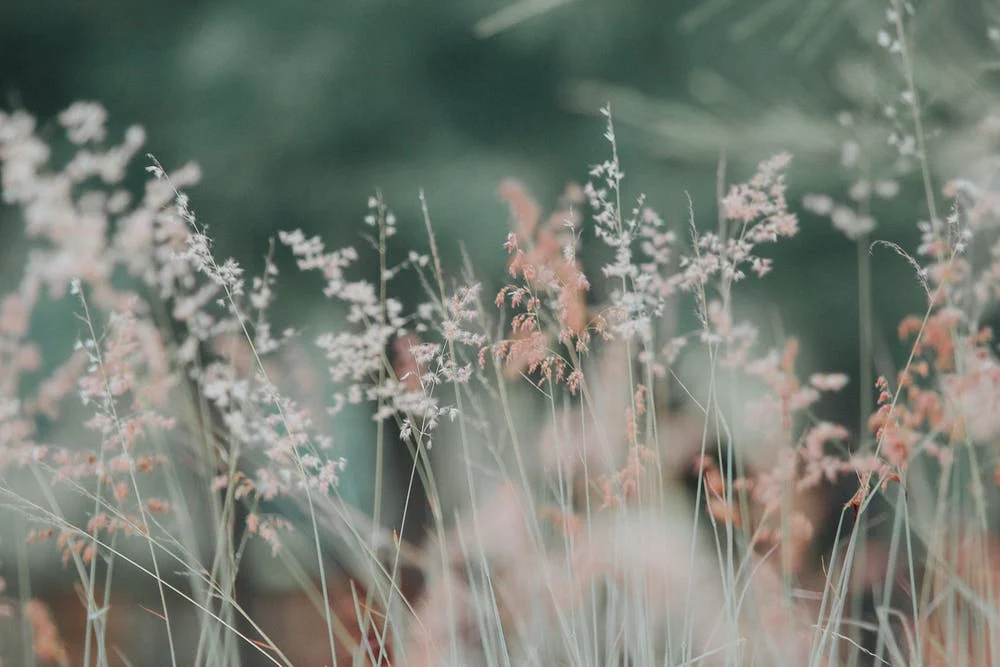With the lockdown, the sleep pattern of many of us has been completely turned upside down. And there is! Not going out made us lose track of time. This has a real impact on our nights and causes many insomnia. Don't worry, we are here to help you and give you our advice. Many little tricks will help you sleep better and fight insomnia. Rather than opting for medications and sleeping pills that often have side effects, turn to natural remedies, they are your friends!
Infusions and herbal teas: the queens of relaxation
The first advice we can give you concerns infusions and herbal teas. Many plants are known to have relaxing and soothing properties. Everything you need to sleep well! The plants concerned are of course chamomile and linden. But, we can also mentionvalerian, passionflower, California poppy (Eschscholzia) and black bale. They are anxiolytic, anti-stress therefore. Among the plants that promote sleep, there are lemon balm and hawthorn. A mixture can sometimes be interesting :
A very interesting option is to prepare an infusion with: 30 grams of passionflower, 40 g of valerian and 30 g of lemon balm. You can use one tablespoon of this mixture for 150-200 ml of boiling water. Cover and let infuse for ten to fifteen minutes. Then you have to filter. You can drink a cup thirty minutes before bed. But be careful, even if they are plants, they are not without dangers. Do not take them with drugs that act on the central nervous system (such as anxiolytic drugs) without medical advice, there may be interactions.
 If you want to sweeten your drink, consider honey! It promotes sleep but it is also and above all rich in Omega-3. This substance helps reduce the feeling of fatigue in the long term. Orange blossom also has soporific virtues. Here is a simple and effective recipe to sleep well: pour a tablespoon of dried flowers into boiling water (you will find them in organic stores), let infuse for 10 minutes. Once you have filtered your drink, put a teaspoon of acacia honey, and voila!
If you want to sweeten your drink, consider honey! It promotes sleep but it is also and above all rich in Omega-3. This substance helps reduce the feeling of fatigue in the long term. Orange blossom also has soporific virtues. Here is a simple and effective recipe to sleep well: pour a tablespoon of dried flowers into boiling water (you will find them in organic stores), let infuse for 10 minutes. Once you have filtered your drink, put a teaspoon of acacia honey, and voila!
No theine or caffeine after 4pm!
Caffeine is known to be an stimulant. No wonder it is not recommended before sleeping. This means, no coffee after 4pm but also no sodas in container, nor energy drinks.  How does caffeine affect our fatigue? Like all psychotropic drugs, it acts on certain receptors in your brain. Adenosine binds to its dedicated receptors. However, its role is to slow down nerve activity to make us enter a state of drowsiness. Adenosine gives us this desire to sleep. It turns out that the caffeine substance has a similar structure to this. It can bind to receptors and block the action of adenosine. The effect is therefore reversed. Instead of feeling intensely tired, caffeine wakes us up! Ah, science and the human body, quite a fascinating story. Theine is also part of the psychotropic drugs, so it is like coffee an exciting substance. However, on Allodocteurs, Dr. Catherine Serfaty-Lacrosnière, nutritionist tells us:
How does caffeine affect our fatigue? Like all psychotropic drugs, it acts on certain receptors in your brain. Adenosine binds to its dedicated receptors. However, its role is to slow down nerve activity to make us enter a state of drowsiness. Adenosine gives us this desire to sleep. It turns out that the caffeine substance has a similar structure to this. It can bind to receptors and block the action of adenosine. The effect is therefore reversed. Instead of feeling intensely tired, caffeine wakes us up! Ah, science and the human body, quite a fascinating story. Theine is also part of the psychotropic drugs, so it is like coffee an exciting substance. However, on Allodocteurs, Dr. Catherine Serfaty-Lacrosnière, nutritionist tells us:
"Tea is blamed for preventing sleep. Certainly tea contains theine which is comparable to caffeine. But there is a difference with coffee. The caffeine passes immediately into the water, into the infusion, and therefore the longer we wait the more the tannins (another component of tea) will decrease the absorption of this caffeine. The tea will therefore be more stimulating than exciting. The more you let a tea steep, the less exciting it is. It can then be consumed after 5 p.m. Another possibility is to discard or not use the first water and let it steep several times to decrease the amount of caffeine."
Tea yes, but in small doses!
Hot milk, our new sandman?
This is a true grandmother's recipe that continues from generation to generation. Warm milk is said to have soothing properties. According to a study conducted by researchers at Masachussets, warm milk would have this positive effect of relaxation especially at bedtime.
In addition, according to Ayurveda, which is a form of traditional medicine originating in India, warm milk is recommended before sleep for a good night's sleep. You can add a little ginger, cardamom and turmeric for a more pronounced effect.

Lavender, a plant with 1001 virtues
Lavender is a relaxing plant, very often used by insomniacs and in many forms. To promote sleep, you can take sachets of this plant, often used in cabinets to embalm clothes, and place them under your pillow or on your nightstand. To take advantage of its virtues, the essential oil is also recommended. It is best to apply two drops on your pillowcase or pajamas before sleeping. You can also prepare a mixture of olive oil (one teaspoon) and lavender essential oil (10 drops) to apply to the inner side of the wrists or on the solar plexus. In aromatherapy (use of plants and aromas for medical purposes) these two points act on the nervous system. The temples, feet or the back of the ears are also points that you can massage to relax. You can also diffuse lavender. Simply put a few drops of essential oil in a diffuser that you will place in your room, 30 minutes before going to sleep. 
Essential oils, essential for a good sleep!
Lavender is not the only essential oil that makes you feel good. Here is a small list of other sleep benefactors:
- Neroli (orange blossom)
- Melissa
- Roman chamomile
- Clary sage
- pinkish
- Valerian
- Sweet marjoram
Their use is the same as for lavender. Either on the pillow or mix with a little oil before applying it to the body so as not to be irritated. 
A light meal at dinner
A light meal allows you to sleep better. Be careful, however, to fill your stomach enough not to run in front of the fridge at 3am. It is better to keep meals consistent (such as a good tartiflette or raclette) at lunch and choose slow sugars such as pasta, rice or wheat that help our body produce sleep hormones. To be more precise, they produce tryptophans that convert into serotonin and then melatonin. This is the hormone commonly known as the sleep hormone. 
Banish screens before sleeping!
Users, who disconnect only a few moments before closing their eyes, spend more time in bed before turning off the light (36 minutes on working days and 39 minutes on rest days compared to 27 minutes on average).
To be more precise, the blue light released increases the activity of light-sensitive retinal ganglion cells, receptors to light, which decreases melatonin. The brain thinks it's daylight, which totally changes our sleep pattern. Two solutions if you can not do without your devices: activate the blue light filter or buy a pair of glasses that filter this light. Otherwise, reading a book or making arrow words are good alternatives. Sleeping well is an essential point to be healthy. We hope all these tips will help you overcome your insomnia!







































